脾胃病科 (共22位医生)
脾胃病中心是1956年伴随北京中医医院成立而设立的院内重点科室,在全国消化脾胃领域具有重要的影响,是首都医科大学中医、中西医结合消化研究生的主要培养基地,现为国家临床重点专科,国家中医重点专科、国家中医药管理局脾胃病重点学科、重点研究室、继续教育基地,北京市中西医结合消化重点学科、重点专科,北京市中医消化特色诊疗中心,国家中医药管理局全国脾胃病协作组组长单位,中华中医药学会脾胃病分会和北京中医药学会脾胃病专业委员会的牵头和挂靠单位。
该中心门诊年接诊病人16万余人,住院患者800余人。现有医务人员37名,其中医师24名。先后承担国家支撑计划、国家自然科学基金课题10余项,发表论文300余篇、出版专著10余部。
脾胃病中心中西医并重,拥有当今最先进诊断和治疗的仪器设备,如北京最先进的超声内镜、高清晰度放大内镜、荧光内镜、窄波内镜、胶囊内镜、食道压力及24小时PH值测定系统、肛门直肠测压和生物反馈治疗系统等。开展了内镜下治疗、中药结肠治疗、穴位敷贴、离子导入、磁疗等中西医结合消化专科特色疗法。
Department of Gastroenterology, which was set up as key department within hospital in 1956 with the establishment of Beijing Hospital of Traditional Chinese Medicine, is highly recognized in the field of gastroenterology in the country. It is the premier digestion training base of traditional Chinese medicine, integrative medicine for graduate of Capital Medical University. The department is now National Clinical Key Department, National Chinese Medicine Key Department, State Chinese Medicine Administration Bureau Key Discipline, State Chinese Medicine Administration Bureau Key Department, State Chinese Medicine Administration Bureau Key Laboratory, State Chinese Medicine Administration Bureau Continuing Education Base, Beijing Traditional and Western Medicine Key Disciplines on Digestion, Beijing Traditional and Western Medicine Key Department on Digestion, Beijing Traditional Chinese Medicine Feature Digestion Treatment Center, the group leader unit of National Collaboration Group on Digestion of State Chinese Medicine Administration Bureau, besides, it is also the leader and affiliated unit of Digestion Disease Association of Chinese Medicine Society and Beijing Traditional Chinese Medicine Professional Committee.
Each year, more than 160,000 outdoor patients and over 800 indoor patients from all walks of life come to Department of Gastroenterology, Beijing Hospital of Traditional Chinese Medicine. There are 37 health staff including 24 physicians working together across medical specialties to provide every patient with the best quality care. So far more than 10 national ranked projects including State Supporting Plan and Natural Science Foundation of China have been undertaken within a culture of collaboration, over 300 theses and more than 10 monographs also has been published as well.
Equiped with the most advanced diagnostic and treatment equipments, such as the ultrasound endoscope, high-definition zoom endoscope, fluorescence endoscope, narrow band endoscope, capsule endoscope, esophageal manometry and 24-hour pH value measurement system, the anorectal manometry and biofeedback treatment system et al, the Digestion Center has been carrying out integrative medicine digestive treatments including endoscopic therapy, traditional Chinese medicine colon therapy, point application, iontophoresis and magnetic therapy as well. This often results in a quick diagnosis, and treatments, which confirms the department’s delivering superior medical care in both Chinese and Western medicine.

脾胃病科
擅长: 慢性腹泻、溃疡性结肠炎、肠易激综合症。
预约挂号
脾胃病科
擅长: 脾胃病科疾病的治疗与诊断。
预约挂号
脾胃病科
擅长: 功能性胃肠病、胰腺炎、胆道疾病。
预约挂号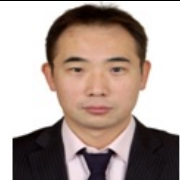
脾胃病科
擅长: 胃脘痛、慢性腹泻、高血压病、失眠、咳嗽。
预约挂号
脾胃病科
擅长: 中西医结合治疗消化性溃疡,结肠炎,急慢性胃炎等消化内科疾病。
预约挂号
脾胃病科
擅长: 胃炎、便秘、慢性腹泻、口疮。
预约挂号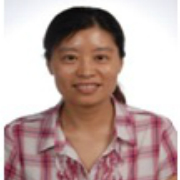
脾胃病科
擅长: 中西医结合治疗胃食管反流病,慢性胃炎,消化不良,消化性溃疡,溃疡性结肠炎、肠易激综合征、慢性腹泻、慢性便秘、口腔溃疡等疾病。
预约挂号
脾胃病科
擅长: IBS,消化道息肉,Barrett食管,食管乳头状瘤,反流性食管炎,伪膜性肠炎,肝炎肝硬化、肝癌、酒精肝、自免肝等肝脏疾病及内镜检查和治疗。
预约挂号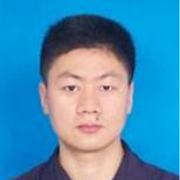
脾胃病科
擅长: 胃食管反流、慢性胃炎、溃疡性结肠炎、功能性胃肠病等慢性胃肠病,脂肪肝、慢性肝炎、胆囊息肉、慢性胰腺炎等慢性肝胆胰病的中西医临床诊疗。
预约挂号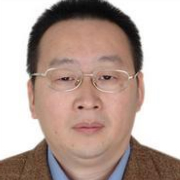
脾胃病科
擅长: 功能性胃肠病、慢性便秘与腹泻、胃食管反流病。
预约挂号
中医科
擅长: 慢性胆囊炎、胆石症、肝硬化、脂肪肝。
预约挂号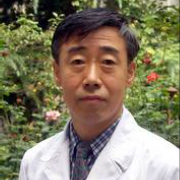
脾胃病科
擅长: 慢性胃痛、慢性腹泻、便秘、慢性过敏、慢性胆囊炎、嗜酸性细胞增多症等。
预约挂号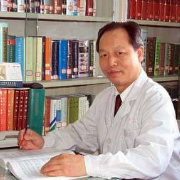
脾胃病科
擅长: 口疮、胃病、便秘。
预约挂号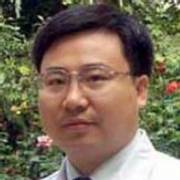
脾胃病科
擅长: 溃疡性结肠炎、肠易激综合征、胃食管反流病、胃炎、消化不良、非传染性肝硬化腹水、胃肠癌及癌前病变、消化性溃疡、慢性腹泻及中医胃痛、胃脹、泄泻、便秘、反酸等疾病的治疗。
预约挂号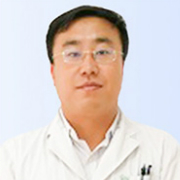
脾胃病科
擅长: 治疗慢性萎缩性胃炎伴有胃癌前病变、炎症性肠病、慢性腹泻、便秘、胃食管反流病,消化不良等消化科常见病、疑难病及内科杂病。
预约挂号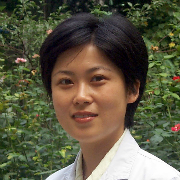
脾胃病科
擅长: 胃炎、腹泻、便秘、脂肪性及酒精性肝病。
预约挂号推荐医生
推荐医院
医院动态
健康问答
专家科普
医生答疑
